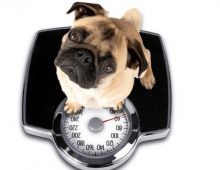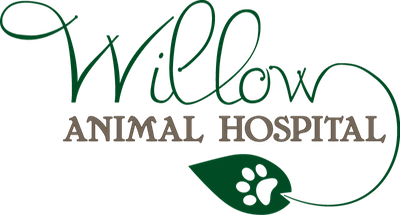Tag Archives: diet
I'm just fluffy!!
One of the most common medical condition we see in our domestic dogs and cats is obesity. Certain medical conditions can contribute to obesity, like hypothyroidism (low thyroid levels) and hyperadrenocorticism (high blood cortisol levels). Obesity can make certain medical conditions more likely and difficult to manage. Most of our pets simply need a diet change in order to prevent obesity. Here are a few diet tips to help prevent obesity in your pet:
• Start thinking about weight management when your pet is young. It’s much easier to keep your pet at a healthy Body Condition Score (see links below) than to lose weight later.
• Feed your pet a quantity of food that maintains a good Body Condition Score, not the amount listed on the back of your food bag. Depending on your pet’s activity level, most feeding chart guidelines will lead to overfeeding and obesity.
• Feed your pet meals of specific and consistent amounts. Free feeding your pet as much as they are willing to eat very often results in overfeeding and obesity. When you know exactly how much they are getting you can then monitor for changes in their Body Condition Score and make appropriate adjustments to fit their needs.
• The amount of food your pet needs will change over time, so make adjustments in order to maintain a good Body Condition Score. Feeding needs will often decrease as pets become aged, after getting spayed or neutered, in hot environments, and when pets are less active.
• Visit these links to learn about how to evaluate Body Condition Score in your pet.
Dogs: http://www.petmd.com/sites/default/files/bcs-dog.jpg
Cats: http://www.petmd.com/sites/default/files/bcs-cat.jpg
Dr. Sarah Myers, Willow Animal Hospital
(photo courtesy of: petattack.com)
Allergies?
Do you think your pet has a food allergy? Food allergies can cause both allergic skin disease and gastro-intestinal problems. Symptoms of allergic skin disease include scratching or licking the skin which can result in poor coat quality, hair loss and skin infections. Gastrointestinal symptoms of food allergies in-clude vomiting and diarrhea. Diagnosis of a food allergy involves consultation with your veterinarian and a food allergy elimination diet trial. Dr. Sarah Myers, Willow Animal Hospital
(photo courtesy of: expertbeacon.com)







